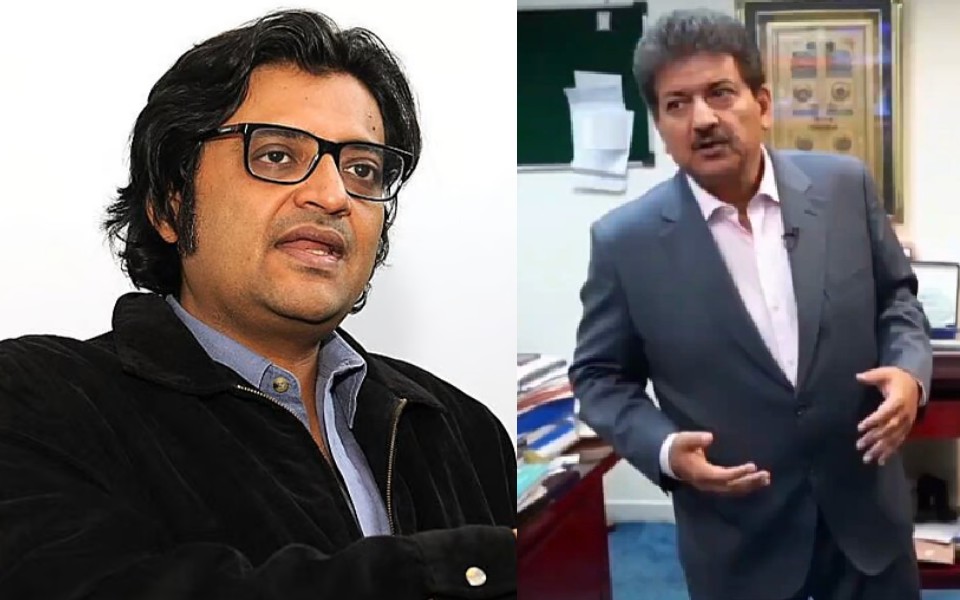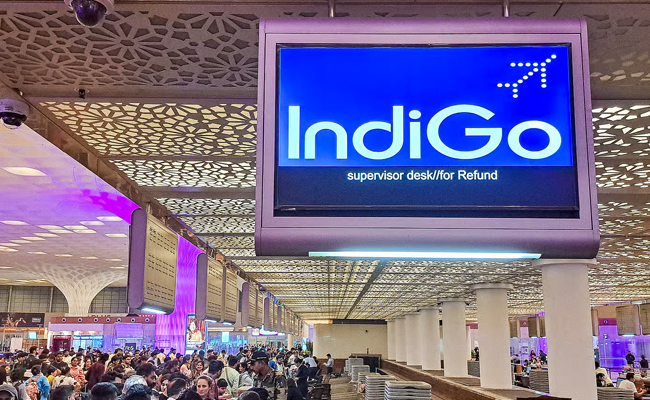New Delhi: Prominent Pakistani Journalist Hamid Mir has alleged that Indian television anchor Arnab Goswami pays Pakistani panelists to "abuse India" during debates on his channel to boost Television Rating Points (TRPs). Mir made these claims in an interview with Pakistan-based digital news outlet The Current.
During the interview, Mir recounted his early interactions with Goswami. “When Arnab Goswami was working with NDTV, around 20–22 years ago, I appeared on his show in New Delhi for the first time. Back then, he was just a journalist. After leaving NDTV and joining Times Now, he would still invite me to his shows. He used to call me and say, ‘Hamid bhai,’ and anyone who calls me ‘bhai,’ I usually oblige. So, I used to join his programs.”
Mir claimed things changed when Goswami launched Republic TV. “Later, I came to know that BJP leader Rajeev Chandrasekhar had invested in Republic TV. Many people told me that Arnab invites Pakistani intellectuals, politicians, and journalists, pays them, and instructs them to ‘abuse India’ on air.”
Mir said he personally asked some of these guests about the claim. “They told me, ‘Yes, we are paid and we abuse India.’ I asked why Goswami wanted this, and they said he gives us three minutes to bash India and then spends ten minutes bashing Pakistan. That way, his TRPs go up. That’s when I stopped appearing on his shows.”
He also recalled an incident when Goswami falsely claimed that Rawalpindi had been devastated during tensions between India and Pakistan. “I visited Rawalpindi, recorded a video, and posted it online to counter his claim. He didn’t like that,” Mir said, adding, “He is no longer a journalist, so I don’t see a reason to respond to him anymore.”
When asked about Indian journalist Barkha Dutt, Mir responded, “She has visited this office several times. She has been part of our programs too. Once, she claimed a Pakistani pilot had been arrested. I’m still waiting for her to release that photo. I’ll comment on her when she does. For now, I’m giving her some margin.”
Arnab Goswami invites Pakistanis on Republic TV and pay them to abuse India?
— Abhishek (@AbhishekSay) June 9, 2025
Pakistani journalist Hamid Mir says many politicians and journalists told him that Arnab pays them to abuse India in TV debates, after which Indian panelists are given more time to respond, all for TRP. pic.twitter.com/dlJqsta7NN
Let the Truth be known. If you read VB and like VB, please be a VB Supporter and Help us deliver the Truth to one and all.
Bengaluru (PTI): The Karnataka government has issued directions to municipal corporations across the state to regulate and prohibit feeding pigeons in public places, citing serious public health concerns.
Deputy Secretary to Government V Lakshmikanth has written to the Urban Development Department requesting it to issue directions to the Greater Bengaluru Authority (GBA) and all municipal corporations to take immediate steps to implement the measures.
In an official note dated December 16 issued by the Health and Family Welfare Department and released to the media on Wednesday, the department said uncontrolled feeding of pigeons in public places has resulted in large congregations of birds, excessive droppings and serious health concerns, particularly respiratory illnesses linked to prolonged exposure to pigeon droppings and feathers such as hypersensitivity pneumonitis and other lung diseases.
ALSO READ: Chinese GPS tracker found on seagull near Karwar Coast
"The commissioner, the Greater Bengaluru Authority and the Commissioners and chief officers of other municipal corporations shall take necessary action to mitigate the causes of dangerous disease spread by pigeon and enforce specified guidelines in their respective jurisdiction," the note said.
According to the department, these include a prohibition on feeding pigeons or causing pigeons to be fed in areas where it may cause nuisance or pose a health hazard to the public. Pigeon feeding shall be permitted only in designated areas in a controlled manner, subject to certain conditions.
"The designated areas may be selected in consultation with stakeholders. The responsibility for upkeep of the designated areas and compliance to the directions shall be taken up by some charitable organisation or an NGO. The feeding in designated areas shall be permitted only for some limited hours in the day," it said.
The note further stated that authorised officers of local authorities shall issue on-the-spot warnings and may impose fines for violation of the order, or lodge complaints to prosecute offenders under Sections 271 (Negligent act likely to spread infection of disease dangerous to life) and 272 (Malignant act likely to spread infection of disease dangerous to life) of the Bharatiya Nyaya Sanhita.
It also directed local authorities to conduct public awareness campaigns, including the display of signboards, banners and digital messages, explaining the health hazards associated with pigeon droppings and feathers, the content of the regulatory directions and penalties for violations, and alternative humane methods of bird conservation that do not endanger public health.





